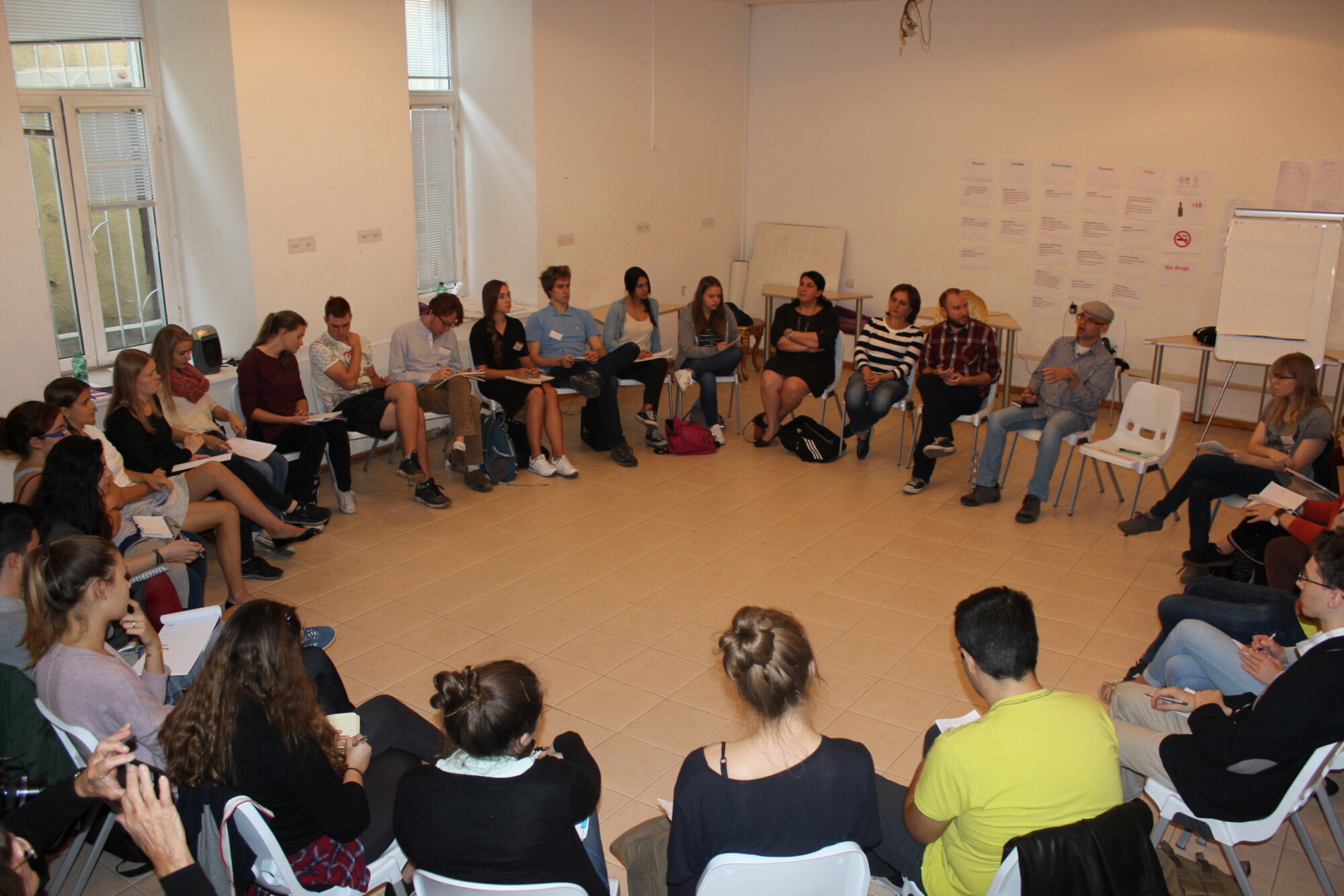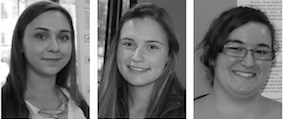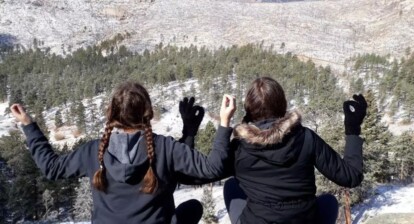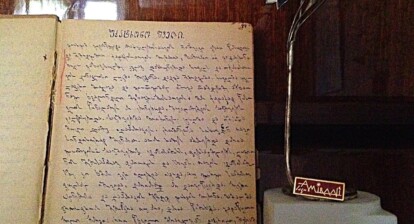What are the best ways to deal with identity and nationalism in Europe? During the History Camp in Georgia, 25 participants from 16 different countries gathered in Tbilisi to exchange their ideas on nationalism and European identities. Furthermore they presented their findings on personal and regional history.
“There are many things to do: at the end of each day we fall exhaustedly in our bed – exhausted in a positive way”, has been one of the reflections after half of their time together has passed. In this first half the group has been part of a guided tour around Tbilisi focusing on the Soviet past of the Georgian capital by presenting diverse historical sites. During the tour, stories of old city were told. Details captured the eyes of the group members.
Various Encounters
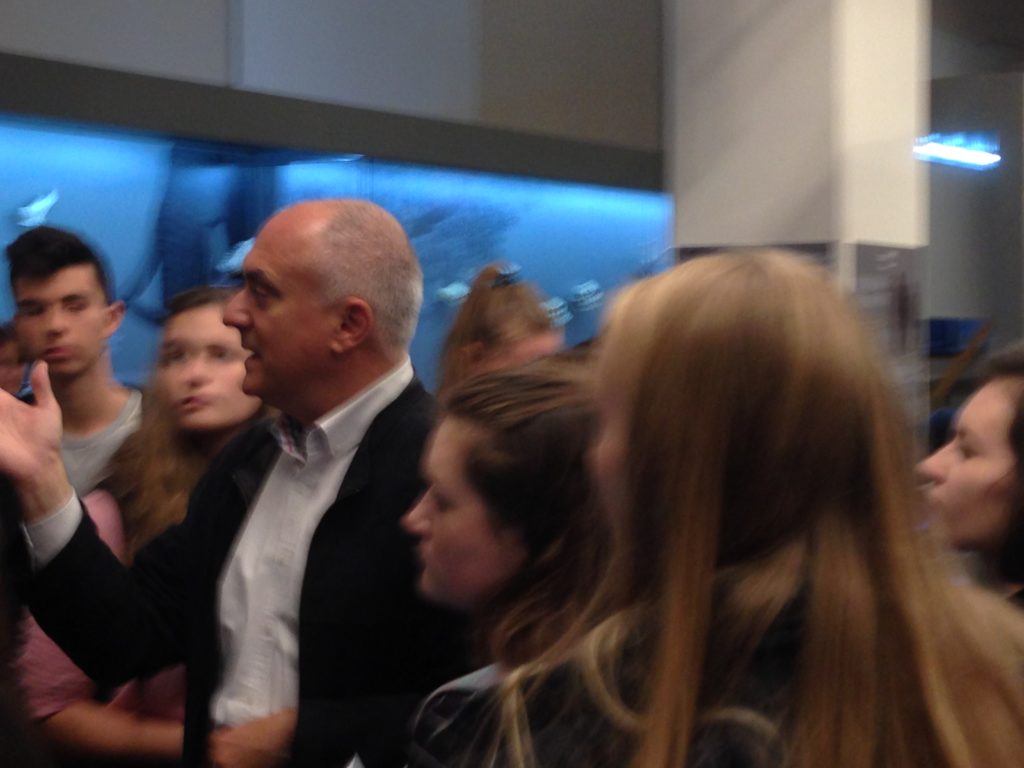
Young Europeans meeting Prof. David Lordkipanidze. (Foto: EUSTORY/Körber-Stiftung)
Furthermore the participants were introduced to the concept of National Museums by looking at current exhibitions with the General Director of the National Museum, Prof. David Lordkipanidze. Later on they attended sessions and discussions on identity and nationalism along presenting items brought from home representing their national identity.
The group also visited the “European High School” of Tbilisi and had a chance to meet Georgian students. They presented their research works and vice versa. Moreover they met Georgian guests having different backgrounds and professions to learn more about Georgia and its people as well as nationalism and identities.
Insights From the Participants’ Feedback
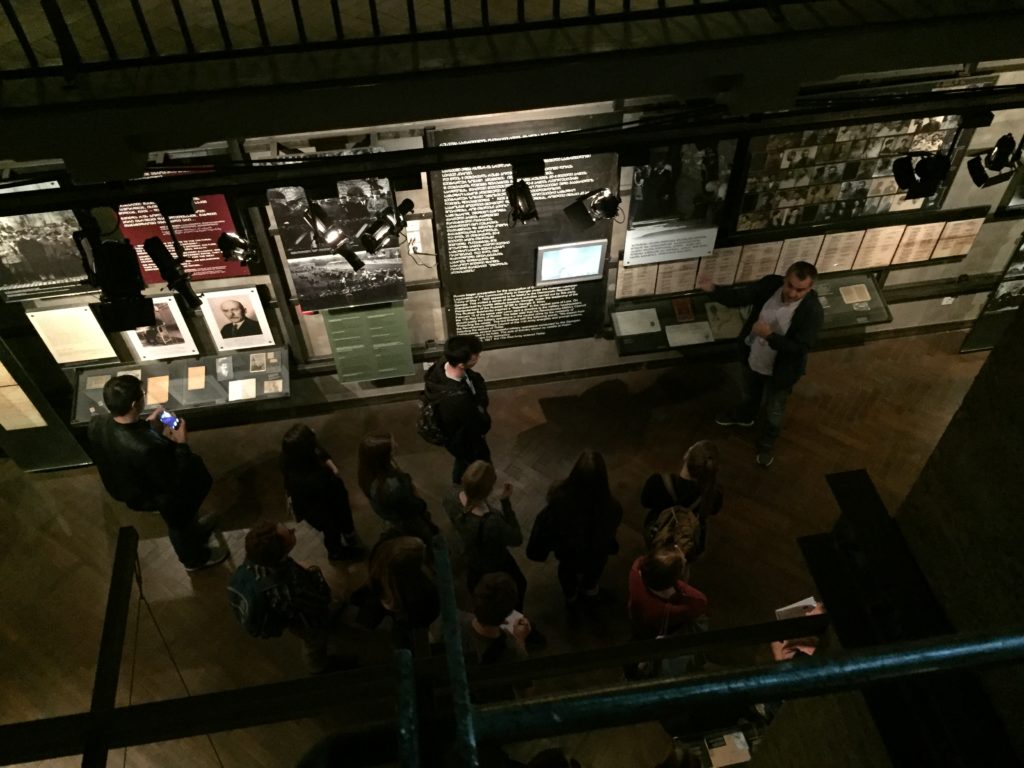
Discovering sights in Georgian Capital Tbilisi. (Foto: EUSTORY/Körber-Stiftung)
“I got to know that it is not possible to understand a country before you see it, I learned a lot about Georgia and the history of Tbilisi.”
“Georgia is somehow similar to my home country. I found similarities in religion and I think the atmosphere in Tbilisi is comparable to the atmosphere in my hometown back in Bulgaria. When I tried traditional Georgian food, the famous Georgian ‘Khachapuri’, I found that it looks and tastes very much like our Bulgarian ‘Parlinka’.”
“I find some differences in lifestyle between Georgia and Germany: Georgians seem to speak with more emotions, with a character that is somehow similar to Italians. It sounds very different than the German language to me. Moreover, in Georgia young people are outside in the cafés on a regular Tuesday night, talking and discussing various issues. It seems to be more communicative to me. I would like to have more of it in Germany.”
“The trip to Georgia is special to me as this is the first time for me to fly and to see mountains!”
Plans for the Second Half
Durign the last days of the camp the participants will be working on a “Future workshop concept” which investigates Europe and its national identities in a critical way.

